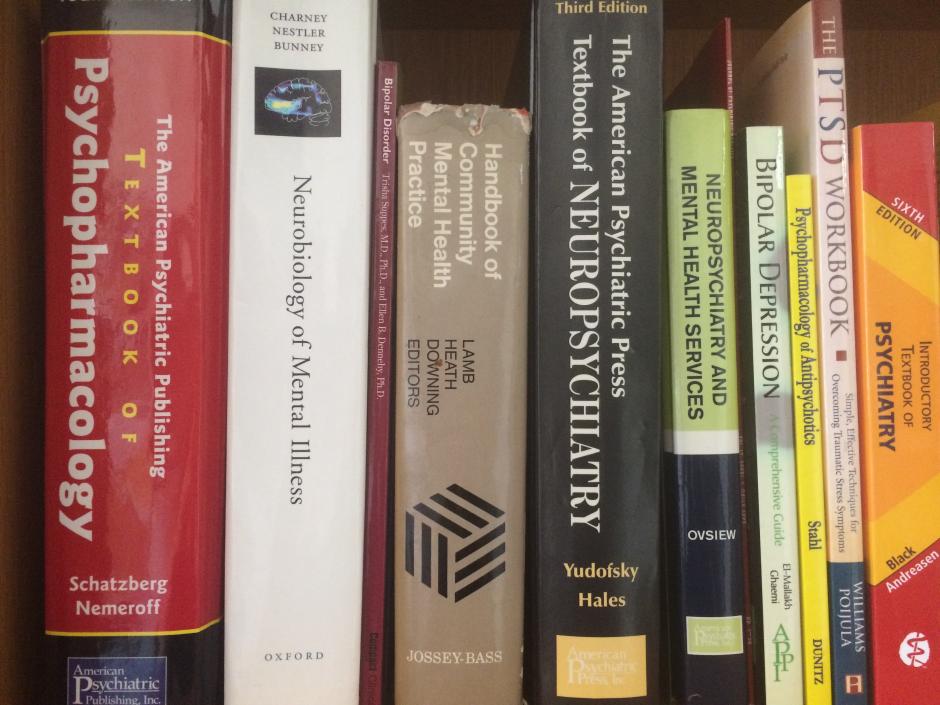Curriculum
Our program devotes two half days per week to protected time for didactics. Our teachers are experts in the field and come from within our own system as well as from major academic centers in the area. We favor learning in small interactive groups and often use a round table tutorial or case discussion format. Our curriculum emphasizes public psychiatry and work with historically oppressed communities while also incorporating new advances in field. PGY 1 and PGY 2 residents engage together in foundational courses taught by core faculty. PGY 2s also co-learn with PGY 3 residents in a two-year sequence of classes focused on subspecialty and advanced psychiatric topics, in addition to seminars and conferences organized within the various clinical rotations. PGY 4s have designated advanced classes including a summer leadership course. In addition, we have a culture club, to explore either our own cultural experiences, or the arts and humanities, from a psychiatric lens. There is a twice-monthly support group led by Dr. Meidav, one of the APDs, and an optional work group once monthly, in which group process and roles in the residency can be explored with an emphasis on both curiosity and emotional safety.
Residents have ample opportunity for participation in curriculum development. Our program embraces an adult learning model, encouraging active engagement in our didactic series. Residents give feedback regarding didactic classes on an ongoing basis and make more formal suggestions at a quarterly meeting with the Program Director. In addition, we believe strongly in opportunities for self-directed and experiential learning and provide flexibility for independent projects according to resident interest. Residents are actively involved in teaching each other on a variety of topics: PGY2s and 4s have opportunities to teach PGY1s on several topics a year, PGY3s supervise and teach during the supervisory rotation on the inpatient psychiatry unit, and PGY3s and 4s teach the whole residency in the advanced psychopharmacology course.
Scholarly Activity in San Mateo County. In addition to participating in the full breadth of didactic offerings, we expect every resident to complete scholarly projects throughout their training and we particularly encourage scholarship with a public psychiatry lens. PGY1 residents co-present a clinical case conference with their senior residents from the inpatient unit during the Psychiatry Block. PGY2-3 residents complete a scholarly project, often with a focus on QI. PGY 2-4 residents are expected to present at least 2 case conferences during the academic year, and PGY4 residents each deliver a Grand Rounds at San Mateo. Many residents have taken active roles in development of projects that aim to reduce health care disparities and residents are encouraged to submit papers to major journals, as well as to present posters and workshops at regional and national conferences based on their work.
The following is a list of typical topics covered during the four years of training (subject to change):
PGY1 and PGY2
Cultural Humility
Introduction to Public Psychiatry
Principles of Hospital Psychiatry
ECT
Introduction to Psychopharmacology
Psychopathology Modules
Internal Medicine topics
Neurology, Neuroradiology and neuropathology
PGY2 and PGY3
Residents-As-Teachers
C/L psychiatry
Addiction Psychiatry
Child/Adult/Geriatric Psychiatry
Forensic psychiatry
Women’s Mental Health
Neuropsychiatry/Neuropsychological testing
Advanced Psychopharmacology
Advanced Psychodynamic Psychotherapy
TEAM CBT
Sexual Orientation and Gender Identity
Culture and spirituality
Ethics
Mind-Body Psychiatry
Leadership, management and teaching in psychiatry
Quality Improvement
PGY4
Advanced Psychotherapy
Advanced Psychopharmacology
Leadership
Clinical Research
All PGYs
Safety and risk assessment
Evidence-based medicine
Practice-based learning and improvement
Integrated Medicine
Group Process
Systems-based practice/Quality Improvement
